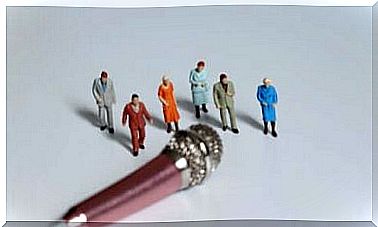Mental Disorders That You Need Help With
Mental disorders usually require professional help, and self-healing is rarely feasible.

Mental disorders can make everyday life difficult not only for those suffering from it, but also for all those who are in the social environment of such patients.
Often mental disorders are the trigger for separations, divorces and deep rifts in family ties. So it is not only in the patient’s interest to organize professional help for this.
What are mental disorders?
Not always when someone is “outside the norm” it also means that someone suffers from mental disorders.
Mental disorders exist when there is a pathological impairment that affects thinking, feeling, behavior and social relationships.
This also includes those mental disorders that affect one’s own willpower and processing of experiences.
Mental disorders are far from rare. The World Health Organization (WHO) even states that around a quarter of those who see a doctor suffer from it.
In Germany, 8 million people are said to suffer from mental disorders that require treatment. Not all patients seek help – precisely because their perception is disturbed by the disease.
However, the following examples of such disorders should be treated:

anorexia
Not all mental disorders are fatal, but anorexia can be fatal if left untreated.
This disease mainly affects women or girls, only every 12th patient is male.
The problem with patients suffering from anorexia is their impaired self-awareness. Even though they are already underweight, they still perceive themselves to be overweight.
The risk of anorexia is damage to the heart muscle, which can lead to sudden cardiac death. A disturbed electrolyte balance due to insufficient food intake can at least lead to cardiac arrhythmias.
Damage to organs such as the kidney and even kidney failure develop . About 15% of those affected die.

Obsessive-compulsive disorder
Obsessive- compulsive disorder has a constant urge to think or do certain things. This can seriously affect everyday life.
Examples are compulsory counting, in which everyday things “have to” are constantly counted, or obsessive thoughts that are repeated over and over again like a ritual.
Compulsive actions are better known than obsessive thoughts because thoughts are invisible, compulsive actions are noticeable in the social environment.
Examples of this are the compulsion to constantly wash your hands. The compulsory control of, for example, hotplates, door locks, electrical appliances.
Obligation to keep things in order, in which things always have to be in the same place in a certain arrangement, or to have to touch, in which there is a need to constantly touch certain things such as doorknobs or street lamps.

Anxiety disorder
An anxiety disorder is someone who shows exaggerated fear reactions for no rational reason. The fear is completely diffuse and cannot be explained, because there is obviously neither danger nor threat.
This feeling of fear can lead to panic attacks and put a heavy strain on the lives of those affected in everyday life, because such attack-triggering situations are avoided, although they are sometimes part of normal everyday life.
Among the well-known examples are animal phobias, such as the fear of mice or spiders. Fear of flying or heights, fear of elevators or tunnels or just the sight of blood. You surely know someone to whom one of these points applies.
Phobias that lead to uncontrollable panic attacks or endanger the safety of other people, for example in planes, elevators or trains, are in need of treatment.

Social phobia
People who suffer from social phobia avoid other people because they live in the constant fear of suddenly being the center of attention and being embarrassed in some (mostly inexplicable) way.
They constantly fear that they will not be able to meet expectations, that they will disappoint others and thus meet with rejection.
Those affected therefore avoid situations in which they could meet people.
This results in social isolation, unemployment and a complete fading out of society.
However, these consequences of social phobia are not seen by patients as a logical conclusion to their illness.
But as a confirmation of their assumption that they will only disappoint people, behave embarrassingly, be treated negatively and fundamentally not be able to meet any expectations.
A vicious circle that has to be broken by professional treatment in order to be able to participate in working life and everyday life among people again.
This list is of course not exhaustive, there are many more mental disorders that belong in the helping hands of a specialist!









